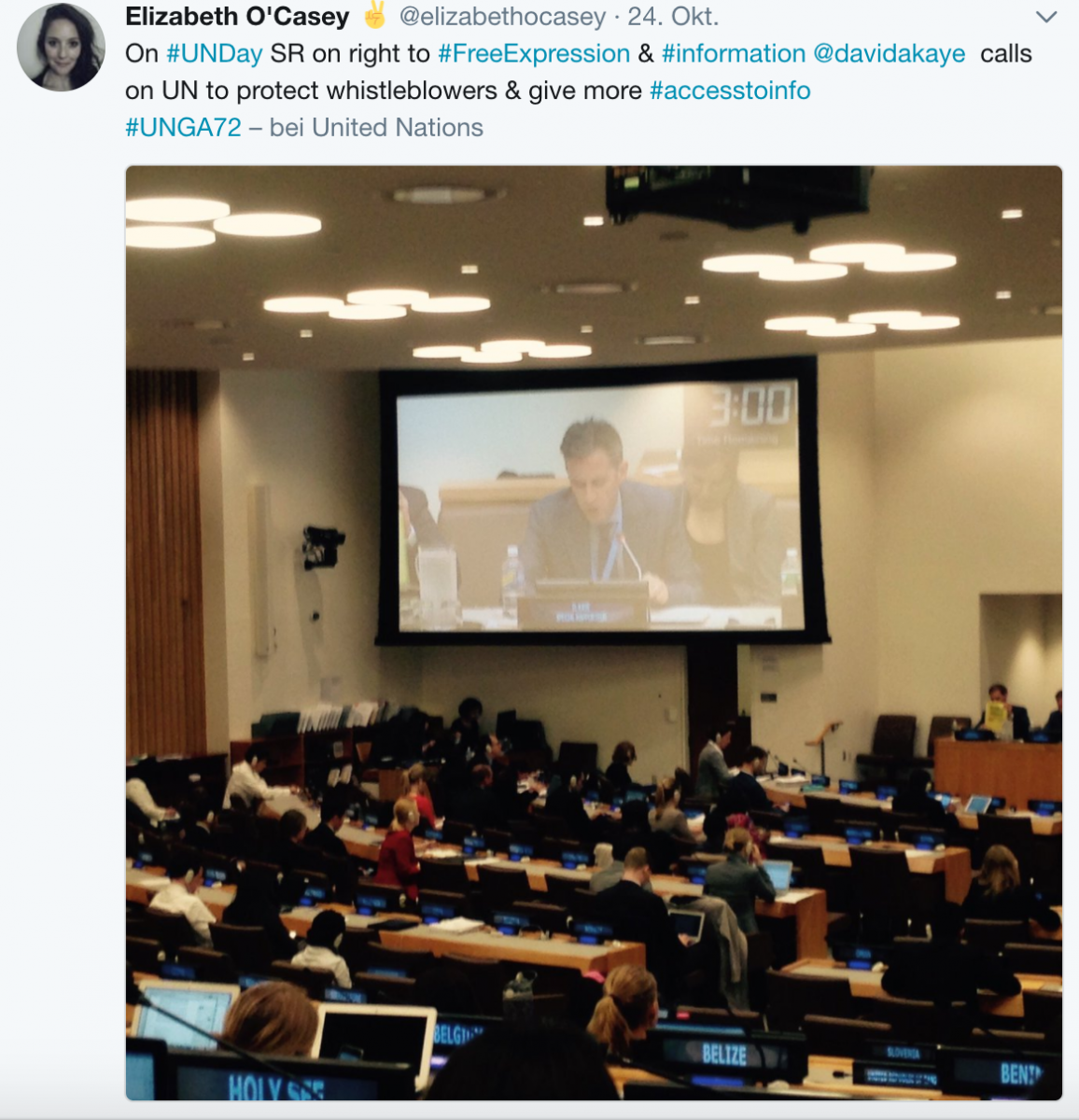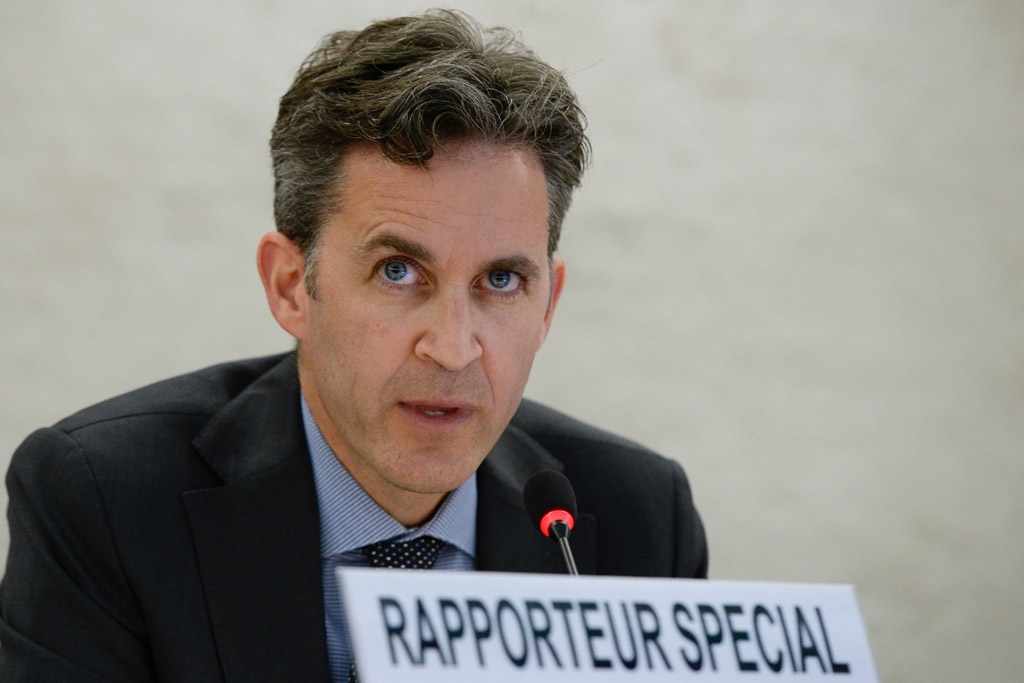David Kaye, the UN Special Rapporteur on freedom of opinion and expression, presented his most recent report to the 72nd Session of the UN General Assembly. The report reviews access-to-information policies of international organisations, including the UN. It is the product of a year’s worth of research and consultations with a variety of stakeholders, to which ISHR contributed through interviews and a written submission.
.png)
The UN should interact regularly with the public
Explaining that the UN doesn’t have a policy that applies to every department and specialised agency, Kaye emphasised that the organisation does not even have ad hoc standards to provide a response to access-to-information requests.
‘For a central global political institution, one that serves the public interest across a range of subject matters, this is intolerable,’ Kaye stated.
Discussing how the UN should go about public disclosure, Kaye echoes ISHR’s insistence that the institutions themselves should engage regularly with the public, typically through civil society organisations, to ensure they make public all relevant and valuable information.
ISHR’s contribution to the report
‘ISHR’s written contribution to the report focused on Special Procedures, Treaty Bodies and reprisals,’ said ISHR’s Training and Advocacy Support Manager Helen Nolan.
‘In fact, as Kaye’s report exposes, we could have pointed to any number of challenges, including failure to translate documents, websites being difficult to navigate, and the lack of information available on elections of Human Rights Council members’, Nolan continued.

Protection for human rights defenders and whistle-blowers
Kaye highlighted that access to information policies may have exceptions – such as in circumstances posing risks – for example where necessary to protect the rights and reputations of human rights defenders.
‘We welcome the Special Rapporteur’s calls for proactive information-sharing by the UN, while ensuring robust protection of human rights defenders and whistle-blowers from reprisals and other negative consequences,’ said ISHR’s Legal Counsel Tess McEvoy. ‘Brave individuals who dare to speak up must not be put at risk.’
Commenting on protections for whistle-blowers within the UN system, Kaye highlighted four principles necessary for effective promotion and protection of these individuals:
- Sanctions for those who retaliate against whistle-blowers
- Existence of an independent office to advocate whistle-blower protections
- Irrelevance of any motivations beyond the wish to disclose fraud, abuse, waste or some other illegal conduct.
- Awareness among UN staff of appropriate channels for reporting such illegal conduct
During the interactive dialogue, many countries echoed the importance of transparency within the UN system. However only few States responded to concerns Kaye raised about ‘disinformation’ and ‘fake news.’
Read the full report here and ISHR’s written submission here.
Contact: Tess McEvoy, [email protected]
Photos: Jean-Marc Ferré via UN Photos and Twitter



.png)


